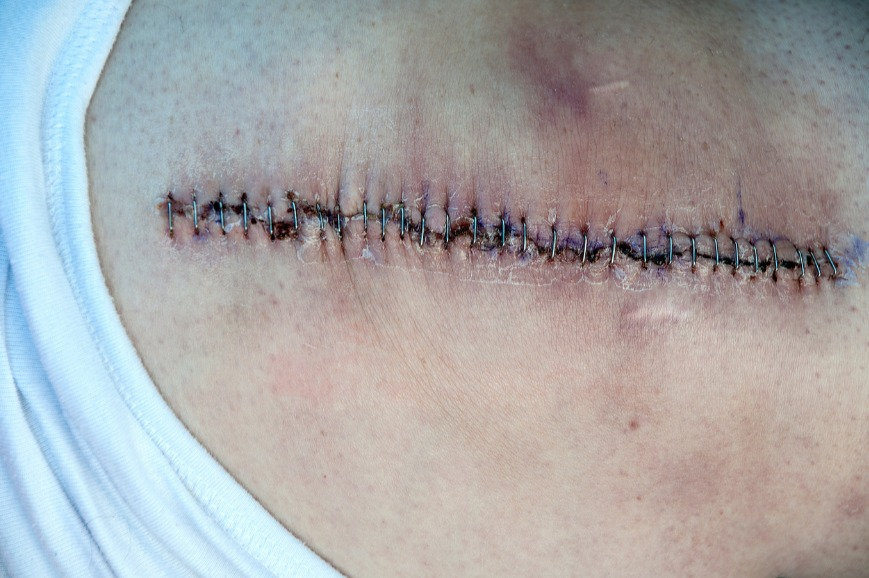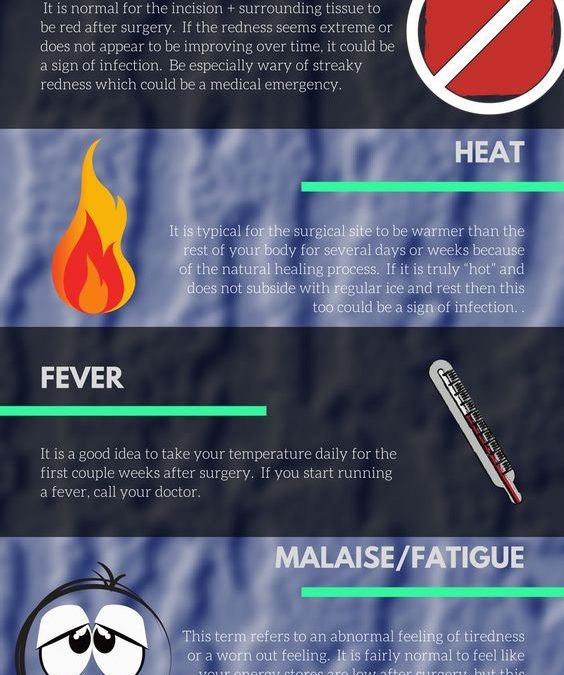Post-surgery, it’s important to keep an eye out for any potential signs of infection. Fever, increased pain, redness, swelling, and pus at the incision site are all indicators that something may be wrong. Remember, it’s always better to be safe than sorry when it comes to your health, so don’t hesitate to contact your healthcare provider if you notice any of these symptoms. What signs of infection should I watch out for post-surgery?
Signs of Infection After Surgery
So, you’ve recently had surgery, and you’re wondering what signs of infection you should be on the lookout for. It’s essential to be aware of the potential indicators of infection after surgery to ensure you receive prompt medical attention if needed. In this article, we’ll explore the common signs of infection post-surgery, when to seek medical help, and how to prevent infections in the first place.
Common Signs of Infection
After a surgical procedure, your body is vulnerable to infections due to the incisions made during the operation. Here are some common signs to be aware of that may indicate an infection is present:
Increased Pain or Discomfort
If you notice increasing pain or discomfort in the area where the surgery was performed, it could be a sign of infection. This pain may be persistent, throbbing, or sharp and can indicate that the surgical site is not healing as it should.
Redness and Swelling
Redness and swelling around the surgical site are typical signs of inflammation, which can also be a sign of infection. If you start to see the area becoming increasingly red and swollen, especially if it extends beyond the immediate area of the incision, it’s time to consult your healthcare provider.
Fever
A fever is your body’s way of indicating that something is wrong. Post-surgery, a fever may be a sign of infection. If you develop a fever exceeding 100.4°F (38°C), particularly in the first few days following the surgery, it’s crucial to seek medical attention promptly.
Increased Drainage
After surgery, some drainage from the incision site is normal. However, if you notice a sudden increase in the amount of fluid or drainage (especially if it becomes thick, green, or foul-smelling), this could indicate an infection.
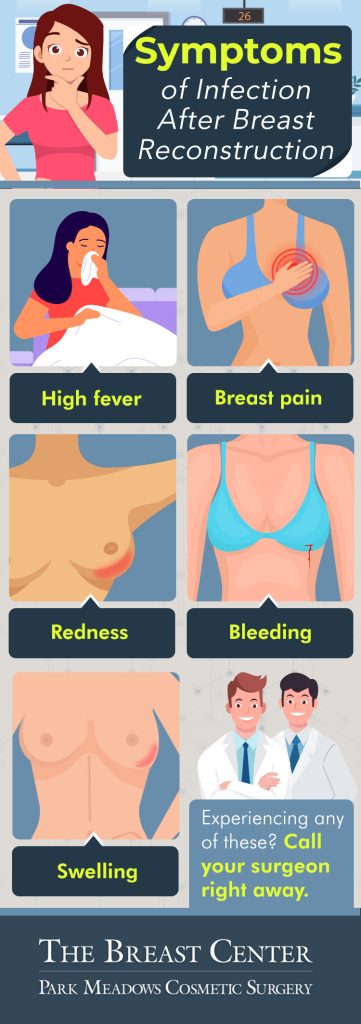
When to Seek Medical Help
If you experience any of the signs of infection mentioned above or have concerns about potential complications following your surgery, it’s essential to seek medical help promptly. Do not hesitate to reach out to your healthcare provider if you notice any of the following:
- Severe pain or discomfort that is not relieved by pain medication
- Persistent or worsening redness, swelling, or warmth around the incision site
- Fever over 100.4°F (38°C)
- Foul-smelling drainage from the incision
- Difficulty breathing or chest pain
- Excessive bleeding that does not stop
Your healthcare team is there to support you post-surgery, and they will be able to assess your condition and provide appropriate treatment if an infection is suspected.
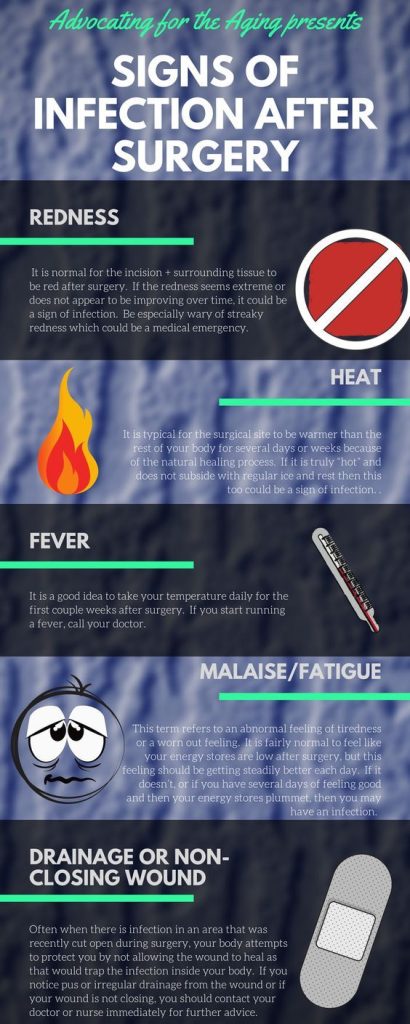
Preventing Infections After Surgery
While some infections may be unavoidable, there are steps you can take to minimize your risk of developing an infection post-surgery.
Follow Your Healthcare Provider’s Instructions
Your healthcare provider will provide you with specific instructions on wound care, medication management, and activity restrictions following your surgery. It’s essential to follow these instructions diligently to promote proper healing and reduce the risk of infection.
Keep the Incision Clean and Dry
Proper wound care is crucial in preventing infections. Keep the incision site clean and dry as much as possible. Follow any specific guidelines provided by your healthcare provider for cleansing the area to minimize the risk of infection.
Watch for Signs of Infection
Stay vigilant and monitor your surgical site for any signs of infection, such as redness, swelling, or drainage. If you notice anything unusual, do not hesitate to contact your healthcare provider for further evaluation.
Take Antibiotics as Prescribed
If your healthcare provider prescribes antibiotics following your surgery, be sure to take them as directed. Antibiotics are often given as a preventative measure to reduce the risk of infection, so it’s important not to skip any doses.
Practice Good Hygiene
Maintaining good hygiene practices can also help prevent infections after surgery. Wash your hands frequently, especially before touching the incision site, to reduce the risk of introducing harmful bacteria.
Avoid Smoking and Alcohol
Smoking and excessive alcohol consumption can impair your body’s ability to heal and increase the risk of infection. If possible, refrain from smoking and limit your alcohol intake following surgery.
Stay Hydrated and Eat a Nutritious Diet
Proper nutrition is essential for healing post-surgery. Ensure you are staying hydrated and eating a well-balanced diet rich in vitamins and nutrients to support the healing process.
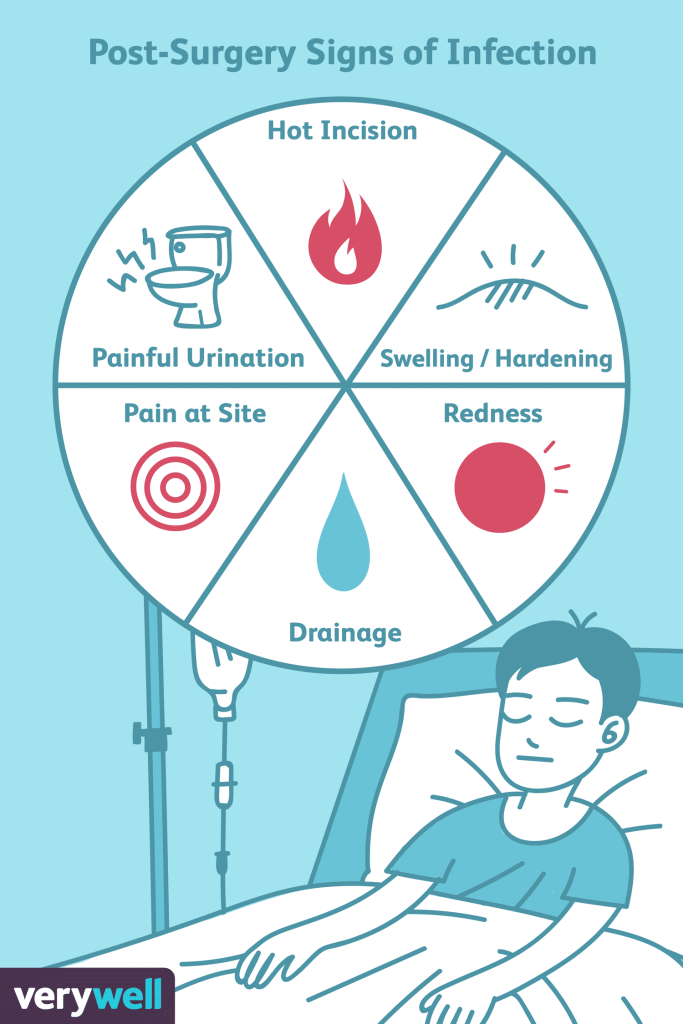
Conclusion
Being aware of the signs of infection after surgery is crucial for ensuring your health and well-being post-procedure. By monitoring for common indicators of infection, seeking medical help when necessary, and taking steps to prevent infections in the first place, you can promote optimal healing and reduce the risk of complications. Remember, if you have any concerns about your surgical site or notice any unusual symptoms, don’t hesitate to contact your healthcare provider for guidance and support. Your health is a top priority, especially during the critical post-surgery period.
